For the third straight year, the biggest soccer tournament in Spain was held in Saudi Arabia.
On the eve of the Spanish Super Cup, one of the most successful clubs in the country, Barcelona, issued a homophobic guidance to all members of its traveling party.
Given the tournament’s location, the club advised players, partners and officials to abstain from “indecent” and “homosexual” behavior.
How about we take this to the next level?
Subscribe to our newsletter for a refreshing cocktail (or mocktail) of LGBTQ+ entertainment and pop culture, served up with a side of eye-candy.
Thankfully, at least one high-profile player spoke out against the discriminatory advice.
Rubén García, who plays for Osasuna, a club in Spain’s second-tier, told reporters he thinks the guidance minimizes gay people.
“It really blows my mind that it’s not normal for a man to like another man,” he said. “It surprises me that [gay couples] are not able to be here. We could take a step forward.”
“Football is associated with macho, masculinity, strength… I suppose that homosexuals will feel scared, and think ‘What will they say if I say that [I like men]?’ If a [teammate] told me that he was homosexual, I would be delighted!”
Keep in mind, García isn’t just saying he would be cool with a gay teammate. He went one step further, saying he would be “delighted.”
That’s a very worthwhile distinction!
García’s unabashed support is appreciated in men’s pro soccer, where there’s a dearth of LGBTQ+ representation. With Zander Murray retiring, there are now only four out pro male players in the world (Collin Martin, Josh Cavallo, Jakub Jankto and Jake Daniels).
Cavallo, who recently returned from an Achilles tear, has spoken about the homophobic harassment he’s endured.
“Being absent from football with a long term injury, the outside noise was present and unavoidable amongst this journey,” he posted on Instagram. “Sadly countless and endless death threats aimed to my everyday life and sexuality due to my football absence.”
Not one to back down, Cavallo dug his cleats into his haters, who hide behind screen names.
When it comes to accepting money from repressive Middle Eastern oligarchies, most soccer officials leave their morals in Europe. FIFA banned players from wearing rainbow armbands during the 2022 men’s World Cup, and sat silently when fans wearing rainbow regalia were barred from entering stadiums.
Even steadfast LGBTQ+ allies, such as Jordan Henderson, abandon the gay community for Saudi millions.
But for García, the fight for queer representation is more personal. He says his gay brother’s experiences have shaped his views.
“My brother José never told our parents directly that he was homosexual, but it was suspected at home,” he said. “In a masculinized environment like football, I put myself in the place of a football player who could be homosexual, and it’s difficult.”
“The world of football is a backwards world. … I understand why [they] are scared.”
García’s penchant for speaking out didn’t cost his team, by the way. Osasuna played in the semi-finals.
Barcelona, meanwhile, lost in the finals to Real Madrid.
“Many soccer players are not aware of their ability to help at a social level,” said García.
While that may be true, we are glad that García is. We’ll take a man like him by our side any day…





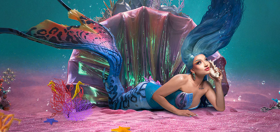


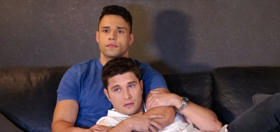
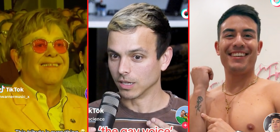



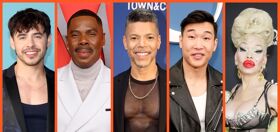


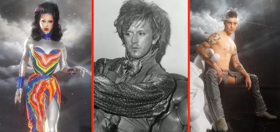
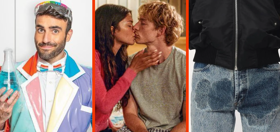
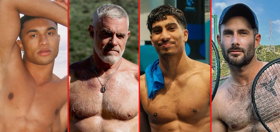

abfab
Beautiful.
m
Gorgeous!
Fahd
European football (soccer) seems to be in the hands of some kind of despicable mafia who don’t care about fans and whose primary interest is the commissions they receive. How else to explain the Spanish Supercopa being played in Saudi Arabia?
There needs to be government intervention at a national and international level to wrestle back control. And the players need to look to some American professional sports for models of how players associations can significantly influence outcomes and messages that the players as role models may project.
And kudos to Rubén García for all that he endures and does on behalf of the community.
linedrive
Bless you, Ruben Garcia
barryaksarben
compare him to Beckham who lied about the World Cup site and their treatment not only of gays but how they basically enslaved the worker they brought into Qatar to build the infrastructure to host the World Cup which by the way is way too hot to be having the world cup. His greed blinded him to the civil rights violations. of the LYING host nation. They promised no hurdles to gay fans who would want to come to the World Cup and then ignored any and all complaints about them changing their minds and harassing io throwing out anyone who showed support for gay people. disgusting lies, but hey Beck got a huge check